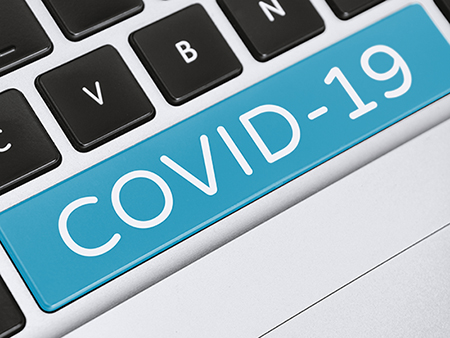Editor's Note: The information published in this story is accurate at the time of publication. Always refer to uab.edu/uabunited for UAB's current guidelines and recommendations relating to COVID-19.
 A UAB communications expert explains how communication skills have changed during the COVID-19 pandemic quarantine. Effective communication has always been the key to all healthy relationships. During the mandatory quarantine, many individuals are working from home with little to no face-to-face interactions, except with their families.
A UAB communications expert explains how communication skills have changed during the COVID-19 pandemic quarantine. Effective communication has always been the key to all healthy relationships. During the mandatory quarantine, many individuals are working from home with little to no face-to-face interactions, except with their families.
Tim Levine, Ph.D., chair and distinguished professor in the College of Arts and Sciences Department of Communication Studies at the University of Alabama at Birmingham, explains how the novel coronavirus pandemic has affected the way we communicate and its critical impact on our daily communication skills.
“The most obvious changes are that most of us now have less face-to-face, in-person interaction with others, and when we are face to face, we are wearing masks,” Levine said. “We have less interaction overall with people outside of the people we live with, and we spend more time on Zoom, Skype and other mediated platforms.”
Levine says, health-wise, social distancing is for the best overall; but social isolation is not healthy in the long term.
“There is some interesting and important research on the effects of social isolation on communication,” Levine said. “One impact is that, the less contact we have with other people, the more we become suspicious of other people. This can make others more defensive and lead to a vicious spiral where isolation leads to suspicion, which begets defensiveness, which reinforces the suspicion and leads to further isolation as a self-fulfilling prophesy.”
A positive is that many are becoming better at using communication technologies, which may be more beneficial moving forward.
“My guess is many of us have had crash courses in Zoom these past few months,” Levine said. “Much has been written on Zoom etiquette, such as turning off your mic when you are not speaking. I think Zoom happy hours or coffee breaks are a great idea. It is also very important to respect other people’s comfort levels as well as their health. Following the basic rule of ‘be considerate’ is probably more important than ever.”
In order to maintain a sense of normalcy, Levine recommends keeping in touch with your friends and community as much as possible.
“It is probably more important than ever to just stay in touch with people whether by phone, email, text or old-fashioned letter,” Levine said.
Getting back to normal will probably be a slow process, but it is also important to remember that what is “normal” changes over time even without pandemics. Social and digital media are sure to remain important for the foreseeable future. But they will not replace face-to-face interaction.